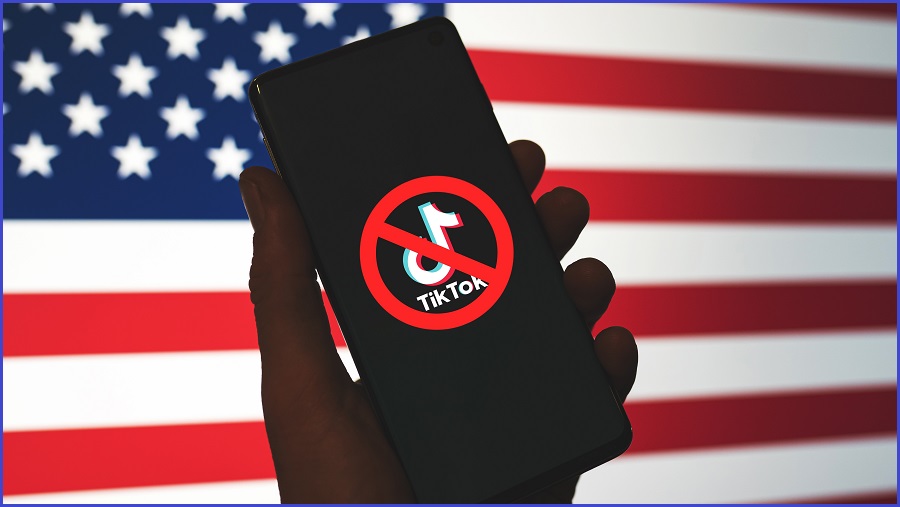TikTok’s CEO has defended the controversial social media platform before the US Congress as an American ban looms.
Shou Zi Chew faced five hours of questions from the US House of Energy and Commerce Committee on Thursday over China’s potential influence over the app, its data-handling practices and plans to relocate US user data.
It comes as a number of countries have recently moved to ban politicians and public servants from using TikTok over national security and privacy concerns, and US lawmakers are considering banning the app in the country entirely.
Members of the US Congress were virtually united in their criticisms of TikTok and calls for it to be banned, with Chew attempting to rebut their claims across the marathon appearance.
The central concern around TikTok relates to its China-based parent company ByteDance, and the fact that it is potentially subject to China’s National Intelligence Law, which requires all organisations and citizens to “support, assist and cooperate” with national intelligence efforts and to “protect national intelligence work secrets”.
This law has led to concerns that Chinese authorities could demand access to the data of TikTok users.
In his opening statement, Chew said that while ByteDance was founded by Chinese nationals, these people now only own 20 per cent of the company. He said that TikTok is not available in mainland China and is headquartered in Singapore and Los Angeles.
“Let me state this unequivocally: ByteDance is not an agent of China or any other country,” Chew told the Committee.
“TikTok has never shared, or received a request to share, US user data with the Chinese government. Nor would TikTok honour such a request if one were ever made. I think a lot of risks that are pointed out are hypothetical and theoretical risks.
“I have not seen any evidence. I am eagerly awaiting discussions where we can talk about evidence, and then we can address the concerns that are being raised.”
The US government has already banned TikTok on all government devices, and President Joe Biden has threatened a nation-wide ban for the app.
A number of Committee members backed this.
“Your platform should be banned,” Committee Chair Cathy McMorris-Rodgers said.
“I expect today you’ll say anything to avoid this outcome. To the American people watching today, hear this: TikTok is a weapon by the Chinese Communist Party to spy on you, manipulate what you see, and exploit for future generations.”
Rep. @cathymcmorris: "TikTok is a weapon by the Chinese Communist Party to spy on you, manipulate what you see and exploit for future generations. A ban is only a short-term way to address TikTok. A data privacy bill is the only way to stop TikTok from ever happening again..." pic.twitter.com/AaWjmynyMD
— CSPAN (@cspan) March 23, 2023
Concerns emerged last year that China-based ByteDance employees were accessing the data of American TikTok users. At the time, TikTok said that these China-based employees do have access to that data but it is subject to cyber security controls and authorisations by a US-based security team.
Soon after, TikTok announced Project Texas, which will see the company relocating all US user data to domestic servers and allowing US tech firm Oracle to investigate its source code and act as an independent monitor.
Chew was asked whether China-based employees will still have access to the data of Americans.
“After Project Texas is done, the answer is no,” he said.
“Our commitment is to move their data into the United States, to be stored on American soil by an American company, overseen by American personnel. So the risk would be similar to any government going to an American company, asking for data.”
But this did little to convince the American politicians.
“I still believe that the Beijiing communist government will still control and have the ability to influence what you do,” Democratic Representative Frank Pallone said.
US Senators Mark Warner and John Thune said after the hearing that Chinese companies are “ultimately required to do the bidding of Chinese intelligence services, should they be called upon to do so”, and nothing in the TikTok boss’s testimony convinced them otherwise.
Californian Republican Jay Obermolte also questioned whether it was possible for TikTok’s source code to be fully investigated by the end of the year.
“I am concerned that what you’re proposing with Project Texas just doesn’t have the technical capability of providing us the assurances that we need,” Obermolte said.
Earlier this month the New Zealand parliament and UK government both enacted bans against TikTok on government devices.










